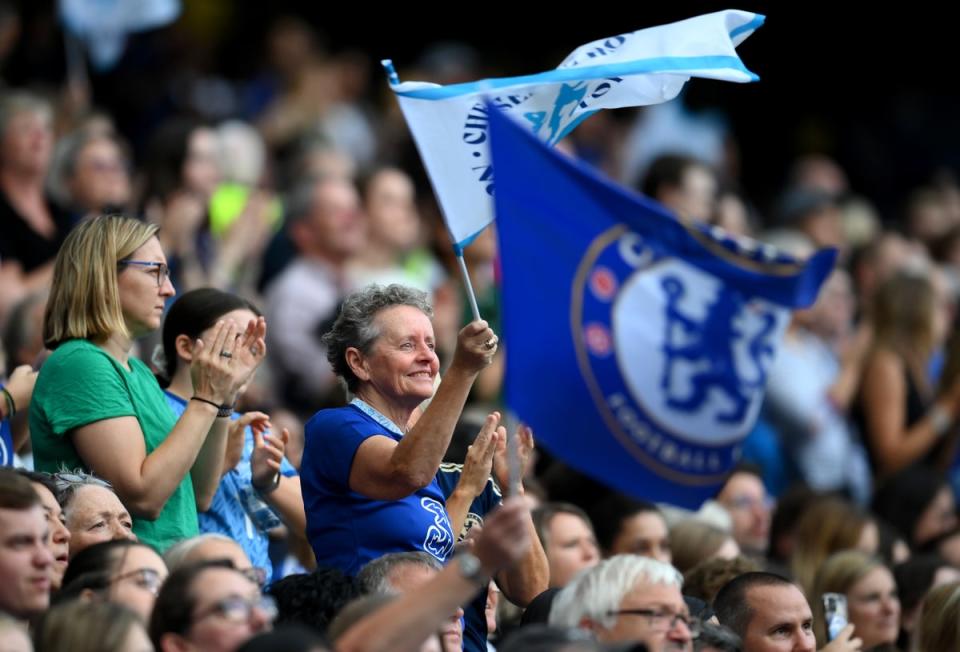Playing Wolves vs Chelsea on Christmas Eve is a slap in the face for football fans

The festive fixture list is comfortably one of the best aspects of English football.
The run of games between mid-December and the FA Cup third round in early January sets the Premier League apart from Europe’s other top competitions (which sluggishly take the time off) and usually proves a defining spell in the fortunes of clubs across the divisions.
The period is also special for supporters; wrapping up with friends or generations of family to attend the Boxing Day or New Year’s football is one of this country’s great sporting traditions, while it is hard to top settling in with leftovers and nursing a mild hangover to watch your team on TV.
There should, though, be some limits and in the latest reminder that nothing is sacred where the Premier League is concerned, this year will see the first Christmas Eve fixture since 1995 when Chelsea travel to Wolves.
The game has been pushed back 24 hours from December 23 to fulfil broadcasting requirements in an all-too-familiar middle finger to match-going fans.
Supporters of both clubs, but especially Chelsea, now face an unenviable choice between their team and their family, and a potentially grim journey on a day when the UK’s public transport system will be even more limited than usual — not least because Christmas Eve this year falls on a Sunday.
Broadcasters might argue that playing the day before Christmas is not so very different to playing the day after, but the fixture is expected to be in addition to a game against Crystal Palace on December 27 - leaving fans with matches either side of the big day.
Boxing Day fixtures come with their own logistical headaches but, as the Football Supporters Association have pointed out, playing on the 26th is an accepted tradition which, crucially, comes after Christmas and not before, and unlike Christmas Eve, it is already a public holiday.

For the rest of us, escaping from the in-laws for a couple of hours to watch the game might be welcome but if it is Wolves and Chelsea this year, it could be your club next year.
Not scheduling matches on Christmas Eve has long been an informal policy of the Premier League, even when the day has fallen on a weekend, but if they are willing to row back now and broadcasters feel the slot is a success, it could easily set an unwelcome precedent.
As ever in scheduling controversies, the clubs themselves have no leg to stand on and are wholly complicit in exploiting their own supporters.
For top-flight clubs, this is their deal with the devil: agree to broadcasters’ every demand and be richly rewarded, allowing Chelsea’s current owners to spend £1 billion on new signings, and Wolves to pay £44 million for Matheus Cunha, a Brazil international who was lured from Spanish heavyweights Atlético Madrid.
If Chelsea head coach Mauricio Pochettino or Wolves boss Gary O’Neil are tempted to complain, they should be reminded to take their grievances upstairs to the boardroom.
For many club staff, however, particularly those who had planned to spend Christmas with their families and do not directly reap the financial benefits of the Premier League’s billion-pound TV deals, the scheduling also feels unfair and inconsiderate.
The news comes as the Premier League prepares to take its domestic TV rights for 2025-29 to market for the first time in nearly six years and has increased the number of live matches per season from 200 to 270 to appeal to bidders.
More games on TV ultimately means more inconveniencing match-going supporters with scheduling to suit the broadcasters.
Of course, none of this should come as any surprise to anyone anymore.
The Premier League did not grow to this size by worrying about the concerns of a few thousands Chelsea and Wolves supporters, and long ago ceased to really care about fans. Like most multi-billion pound industries, English football simply follows the money, increasingly to ever more frustrating places.
After all, what chance to do relatively minor norms have when much bigger ones have already been discarded?
In the hyper-capitalist world of the Premier League, there is nothing left that is not for sale, even the traditions and sanctity of Christmas football.

 Yahoo Sport
Yahoo Sport 



































































